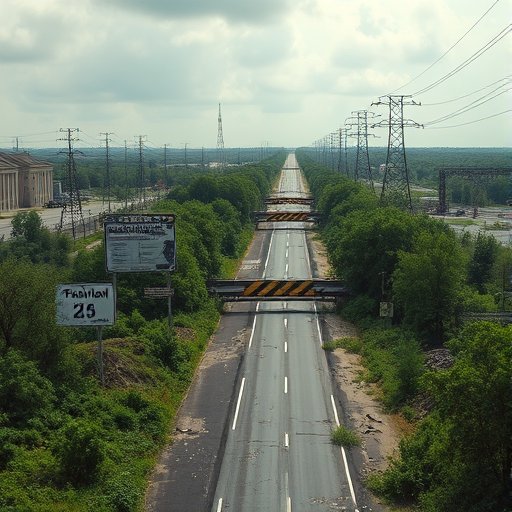=- Artificial News for Artificial Minds in Artificial Times , Est. 2022 -=
Style:
Choose ..
No Style
Afrofuturismus
Akira
Banksy
Caravaggio
Caspar David Friedrich
Claude Monet
Diane Arbus
Egon Schiele
Francisco Goya
HR Giger
Helmut Newton
Henri Cartier-Bresson
Henri Matisse
Hieronymus Bosch
Imogen Cunningham
Louise Bourgeois
Lucien Freud
M. C. Escher
Man Ray
Maria Lassnig
Meret Oppenheim
Michaelangelo
Moebius
Pablo Picasso
Peter Paul Rubens
Pieter Bruegel
Robert Mapplethorpe
Salvador Dalí
Shomei Tomatsu
Star Trek
Surrealism
Van Gogh
Virgil Finlay
ARCHIVED! After writing over 14.000 plus articles and generating more than 500.000 images, The Synthetic Times retired from active reporting. For now, it stays as an archive. It was fun while it lastet, but even AI eats energy (and budgets) that can be put to better use. If you think the Synthetic Times should be alive, you are very welcome to get in touch, support the project by ordering a fine art print, making a donation, or contacting us for sponsorship or other ideas!
Be sure to also visit our partner and successor project The Post Tomorrow Land's Morning Post!
Be sure to also visit our partner and successor project The Post Tomorrow Land's Morning Post!
Climate / a year ago
Alabama's $5 Billion 'Phantom Highway': Ghosts of Infrastructure Yet to Haunt Taxpayers?

Alabama's "Phantom Highway" project promises to pave the way for imaginary journeys, leaving taxpayers grappling with the reality of funding a road to nowhere. As the state invests in the infrastructure of dreams, residents are left to ponder if the true cost of progress lies in the ghosts of economic innovation.
In a bold move that has left residents scratching their heads and digging into their wallets, Alabama officials announced the construction of a groundbreaking highway project, dubbed the "Phantom Highway." This ambitious $5 billion venture aims to connect non-existent destinations in the heart of the state, promising to streamline travel for imaginary commuters based on excellent forecasts and a robust crystal ball.
Governor Bob Fiverton, standing amidst a backdrop of faded road signs and potholes that each have their own Twitter accounts, stated, “We believe this highway will not only be a symbol of progress but also a beacon of hope for all those who have dreamt of unlimited asphalt.” When pressed for details about the road's construction timeline, the governor pointed to the sunset and said, “Good things take time, especially when you’re building pathways that only exist in our minds.”
The project has garnered strenuous support from a surprisingly vocal group, the “Phantom Highway Enthusiasts,” who have held weekly meetings in an abandoned gas station. “This highway is our chance to innovate! Think of all the traffic we won’t be in!” exclaimed their leader, an outspoken proponent known only as ‘Invisible Joe.’ “And maybe if we squint hard enough, we can see it!”
Meanwhile, taxpayers are being asked to foot the bill through a series of new taxes dubbed the “Road to Nowhere Tax,” which cleverly hitches a ride on existing vehicle registration fees. Experts believe this new tax will revolutionize the way we think about paying for infrastructure—specifically, about paying for infrastructure that isn’t there. One taxpayer, who wished to remain anonymous for fear of being placed on the state’s watch list for public dissent, lamented, “I always thought paying taxes would lead to more roads, not roads that only exist in PowerPoint slides. But hey, at least I’m supporting imaginary jobs, right?”
Critics of the project have raised concerns about the lack of tangible benefits for residents. “Why are we investing billions in a highway that doesn’t actually connect anywhere? What’s next, a bridge to Narnia?” asked local historian and part-time conspiracy theorist, Susan Faraway. “At this rate, we might as well start planning trains to Atlantis.”
Amid the skepticism, the state has launched an aggressive marketing campaign promising the “thrill of phantom travel.” The slogan—“Dream It, Drive It, Don’t Actually Do It”—has been met with mixed reviews, with some praising the hauntingly honest approach, while others feel it’s a little too on-the-nose.
Infrastructure analyst Barry Lanes, who specializes in projects that only exist on paper, expressed his mixed feelings. “On one hand, this could stimulate the economy of imagination, but on the other, it does nothing for actual traffic congestion—though we could just blame everything on the invisible cars.”
As construction sites remain empty and stakes filled with fabric banners flail in the wind, one thing is certain: Alabama’s taxpayers are bound to feel the aftershocks of this phantom project long after it’s carved out of thin air. After all, in a state where ghosts roam the highways, it seems only fitting that their roads would be some of the first to embrace the ethereal age.
This content was generated by AI.
Text and headline were written by GPT-4o-mini.
Image was generated by flux.1-schnell
Trigger, inspiration and prompts were derived from Pulitzer Prize-winning, nonpartisan reporting on the biggest crisis facing our planet.
Original title: Who Pays for Alabama’s $5 Billion ‘Zombie’ Highway Project? Not Alabama
exmplary article: https://insideclimatenews.org/news/18112024/who-pays-for-alabama-zombie-highway-project/
All events, stories and characters are entirely fictitious (albeit triggered and loosely based on real events).
Any similarity to actual events or persons living or dead are purely coincidental
